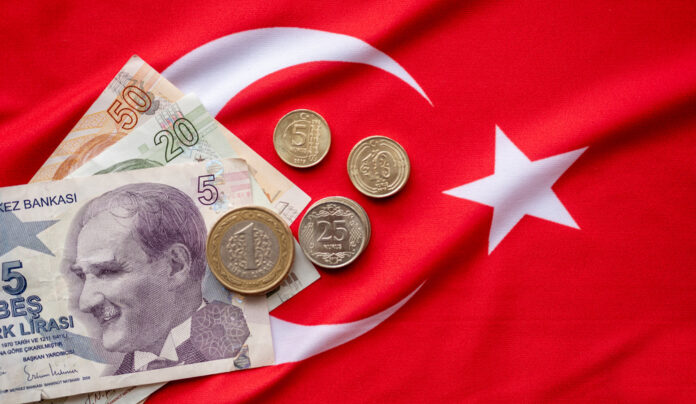ANKARA: At a time when Ankara is searching for foreign resources and facing unprecedented inflation rates, Turkey’s currency swap deal with the UAE is a much-needed confidence boost for the country’s economy.
However, analysts have warned that this deal alone will not solve the underlying problems facing the lira.
The two nations have signed a three-year agreement worth $4.9 billion, including finance and trade relations.
Securing foreign swap lines are expected to fuel Turkey’s much-needed foreign currency reserves.
“While this is a good vote of longer-term confidence in the Turkish economy, the currency swap will not address the roots of Turkey’s economic challenges. Many of these challenges are linked to nonconventional economic policy decisions,” Robert Mogielnicki, a senior resident scholar at the Arab Gulf States Institute in Washington, told Arab News.
According to Mogielnicki, the currency swap puts some cash behind recent efforts to improve strained relations between the UAE and Turkey.
“The UAE is likely interested in using the currency swap to better position Emirati firms and investors to engage with Turkish markets as well as to support foreign policy objectives,” he said.
Noting that currency swaps reduce dependency on a third currency and thus avoid fees arising from exchange rate volatility and transfer costs, Mogielnicki said that this move paves the way for greater trade and investment between countries.
“The broader MENA region is unlikely to be worse off because of the currency swap, but I don’t view this agreement as especially significant for the region,” he added.
Enver Erkan, the chief economist of Tera Investment in Istanbul, welcomes the swap agreement with the UAE as a positive step towards increasing the gross foreign exchange reserves held by the Turkish Central Bank.
“We, on the other hand, also consider the economic landscape in terms of net reserves excluding swaps. While net reserves are around $8 billion under the current circumstances, there is a negative picture of minus $56 billion in net reserves excluding swaps,” he told Arab News.
Talks between Turkey’s central bank and its counterpart in Azerbaijan on securing a possible currency swap line are also ongoing.
Swap agreements are mainly used by countries that conduct large-scale trade relations between each other to finance part of these relations to be paid in local currencies.
Turkey already has some swap deals with China, Qatar and South Korea worth about $23 billion.
With this latest currency swap agreement, the Turkish Central Bank’s total swap figure with foreign central banks reached $28 billion.
The swap agreement with China in 2012 and subsequent arrangements have permitted Turkish companies to pay for imports from China using yuan.
The agreement between Turkish and Emirati Central Banks will be valid for a period of three years, with the possibility of being extended further.
Emre Peker, European director for political risk consultancy Eurasia Group, thinks the swap agreement will not have a material impact on Turkey’s economy, but it will help Turkish companies trading with the UAE on the margins.
“It is not a game changer, but will alleviate some financing pressures, considering that the swap covers Turkey’s average annual exports to the UAE,” he told Arab News.
The agreement comes ahead of a trip by Turkish President Recep Tayyip Erdogan to Abu Dhabi in February as part of Turkey’s moves to repair ties and concentrate on the economy.
Mustafa Sentop, Speaker of the Grand National Assembly of Turkey, told the Emirates News Agency the visit is “going to be a testament to the improved ties between our countries.”
“We believe that the leaders of Turkey and the UAE standing next to each other will deliver an important message on its own. The objective is to further strengthen the bilateral relations. There are mutual efforts to conclude new agreements and to renew previous commitments to cover a wider range in our current cooperation,” he added.
According to the Emirates News Agency, the UAE is Turkey’s top trading partner among the Gulf Cooperation Council countries, with trade between the two countries US$8 billion in 2020.
Sentop said the trade in the first 10 months of 2021 had amounted to US$6.4 billion.lira

